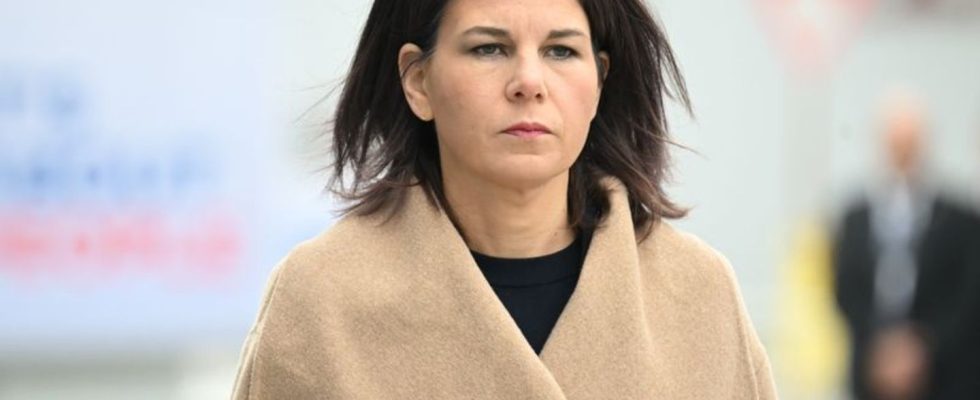Middle East peace solution
Baerbock calls on Arabs to work together
“Everyone who wants to end the suffering must now work together,” says Foreign Minister Annalena Baerbock. photo
© Sebastian Christoph Gollnow/dpa
After the end of the humanitarian ceasefire, heavy fighting is raging again in the Gaza Strip. Baerbock also sees the key to peace and security between Israel and Palestinians in the region.
“Everyone who wants to end the suffering must now work together,” said the Green politician to the German Press Agency in Berlin. “The key to a life of peace and security for Israelis and Palestinians also lies in the region.”
Especially in the hours in which there is a struggle for a continuation of the humanitarian ceasefire, “close exchange with the constructive and moderate Arab states in the region is important to her. We have made this our priority from the beginning, but we will not be involved in this commitment ease up.” Baerbock particularly highlighted the mediation activities of Qatar, Egypt, Saudi Arabia, Jordan and the United Arab Emirates (UAE), as well as Bahrain and Morocco.
Key to a peace solution
“In a situation in which one more spark is enough to set the entire region into conflagration, Germany will continue to work intensively with its regional partners to ensure that Hamas no longer has a chance to repeat the terror of October 7th again and again Israel,” explained the Foreign Minister. “So that a future for the region is possible in which all states have the right to sovereignty and a life in peace and security.”
Baerbock highlighted the “indispensable role” that Qatar plays as a mediator in negotiating humanitarian ceasefires and the release of hostages. “Thanks to this invaluable commitment, 14 German-Israelis, including many children and women, have already been able to return to their families from the dark tunnels of Hamas,” she explained.
The fact that the key to a peace solution lies in the region also shows “the great sense of responsibility with which Egypt is approaching the important humanitarian care of the people in need in Gaza, and its invaluable mediation efforts in the hostage issue.” It also shows how much Saudi Arabia is opposing terrorism – “with its efforts towards a historic normalization that could consolidate the security of Israel and the entire region in the future and put it on a new basis.”
Risk of a regional wildfire
Baerbock also highlighted Riyadh’s efforts to contain the risk of a regional conflagration – “because the Iran-backed Houthis in Yemen continue to ignite dangerously.” The fact that Saudi Arabia’s air force is intercepting Houthi missiles aimed at Israel underlines: “A peaceful future for the entire region continues to be a concern for Saudi Arabia, to which the country is actively committed.”
Without Jordan’s mediating role and its large-scale humanitarian aid, “many more desperate people would be left in terrible suffering,” explained Baerbock. How important the Arab states are to a peace solution can also be seen “in how strongly the United Arab Emirates are committed to humanitarian work and how steadfastly they, as well as Bahrain and Morocco, are sticking to the peace treaties with Israel despite enormous counter-pressure,” emphasized the minister and added: “Because they know that this is the only way Palestinians can have a secure future.”

